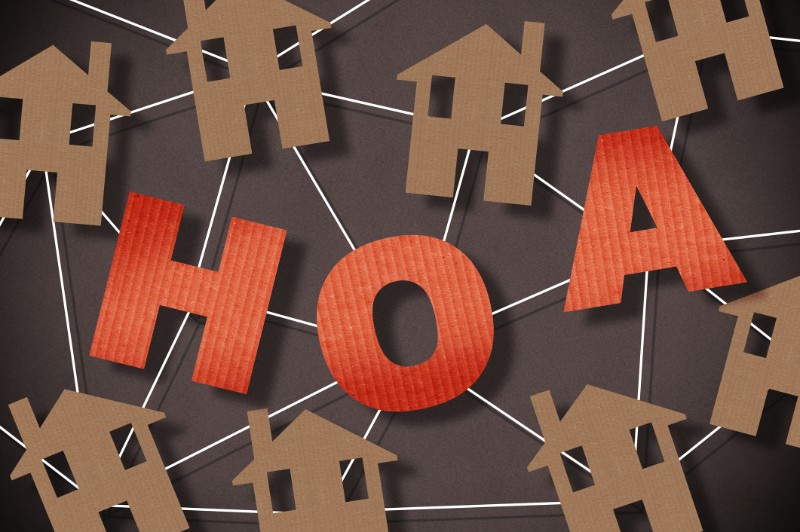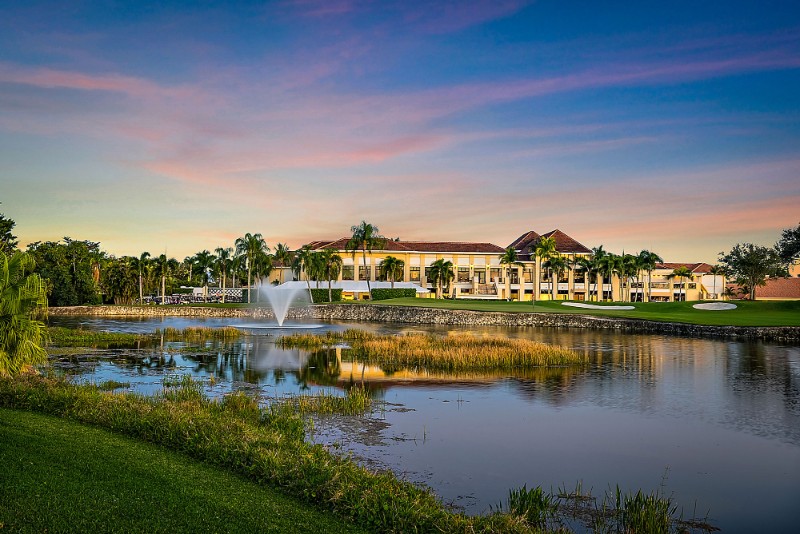
For new residents of Ibis in West Palm Peach, FL, it’s important to understand how the community’s Property Owners Association (POA) and Homeowners Association (HOA) work.
For many newcomers exploring The Club at Ibis, one of West Palm Beach’s premier gated communities, questions about homeowners associations (HOAs) and property owners associations (POAs) naturally arise.
If you’re considering investing in The Club at Ibis real estate, continue reading as we take a closer look at how these organizations function, including how they safeguard property values, uphold luxury standards, and shape the lifestyle that makes Ibis so desirable.
Answers to Top 5 most common questions:
FAQ #1 • What’s the difference between the ibis POA and my neighborhood HOA?
FAQ #2 • How much are the HOA and POA fees, and what do they cover?
FAQ #3 • What are the main rules I need to know as a new homeowner?
FAQ #4 • How does the architectural review process work?
FAQ #5 • How do I stay involved and get questions answered?
These tend to be the most frequently asked questions because they address the core concerns new or prospective homeowners have when moving into a master-planned community like Ibis. In short, they answer the questions that help homeowners feel confident, informed, and ready to enjoy life at Ibis.
FAQ #1
WHAT’S THE DIFFERENCE BETWEEN THE IBIS POA AND MY NEIGHBORHOOD HOA?

In a luxurious community like The Club at Ibis, POAs and HOAs play an important part in preserving both status and value
Life at The Club at Ibis is shaped not only by its golf courses and resort-style amenities, but also by the way the community is carefully managed. When you purchase The Club at Ibis real estate you become part of two associations: the Ibis Property Owners’ Association (POA) and your neighborhood’s Homeowners Association (HOA).
Each plays a distinct role in maintaining the beauty, security, and value of the community, and together they form the structure that keeps Ibis one of West Palm Beach’s most desirable addresses.
The Ibis Property Owners’ Association (POA)
Put simply, the Ibis POA is the framework that unites the community’s 33 neighborhoods. It oversees the larger elements of community life that benefit every resident, creating the polished first impression and seamless experience the community is known for.
The POA, for example, manages the gated entry and 24-hour security patrols, ensuring peace of mind from the moment you arrive. It also maintains the landscaping along main roads, community lakes, and the distinctive entrances that signal you’ve arrived somewhere special.
Roads, infrastructure, and long-term capital improvements also fall under its care, as does community-wide compliance with master design standards.
Neighborhood Homeowners’ Associations (HOAs)
Falling under the Ibis POA are several individual HOAs that focus on the character and needs of each Ibis neighborhood. While the POA manages the “big picture,” neighborhood HOAs shape the details that make your street or cul-de-sac feel inviting and orderly.
Neighborhood HOAs often handle architectural approvals, reviewing exterior changes like roof colors or landscaping to keep the community’s style consistent. They may oversee neighborhood-specific landscaping, guest parking, and even small-scale amenities such as local parks or shared green spaces.
These associations allow each enclave to fine-tune its appearance and rules while still aligning with the broader standards set by the POA.
Why both matter and how they work together
The beauty of this dual structure is that it balances consistency with individuality. It also protects property values. With both the POA and HOAs working in tandem, those looking to invest in The Club at Ibis real estate can be confident that the community will continue to look and feel like the luxury golf destination it was designed to be.
FAQ #2
HOW MUCH ARE THE HOA AND POA FEES, AND WHAT DO THEY COVER?

Behind the beauty of The Club at Ibis, POA and HOA fees ensure every detail is cared for, from lush landscaping to community security.
At The Club at Ibis, POA and HOA fees are structured to support both the overall community and the individual neighborhoods within it. This two-tiered approach ensures that the property as a whole maintains its luxury standard while each enclave receives tailored attention. In addition, mandatory club membership integrates every homeowner into the social and recreational fabric of Ibis, reinforcing its identity as both a residential and lifestyle destination.
The POA: The foundation of Ibis living
Every resident belongs to the POA, which oversees the shared elements that give Ibis its polished and secure feel. There is a one-time capital contribution of $7,500 at closing, followed by a quarterly fee of $990.
The POA’s scope is broad, covering community-wide landscaping, public safety and 24-hour manned security, cable and technology infrastructure, irrigation systems, roads, and upkeep of shared parks and common areas. Essentially, it ensures that every corner of Ibis, from the entrance gates to the boulevards lined with royal palms, reflects the community’s luxury standard.
Neighborhood HOAs: Localized care and character
In addition to the POA, most neighborhoods within Ibis have their own HOA fees. These vary by neighborhood with costs reflecting amenities, neighborhood size, and level of maintenance provided.
For example:
- Orchid Reserve has a monthly HOA fee of about $993, covering upkeep for attached residences.
- Terra Lago averages $625 per month.
- Smaller enclaves like The Woodlands, La Strada, and The Preserve generally range between $400 and $650 per month,
- Sandhill Trace trends a bit higher at $500 to $700.
- Neighborhoods with luxury estates, such as Eagle’s Isle, can reach $1,000 monthly.
- Communities like Bay Pointe carry more modest HOA fees or around $378 per month, but still include access to a neighborhood pool.
HOA responsibilities typically include maintenance of community-specific landscaping, architectural reviews to protect neighborhood character, and localized amenities such as small parks or shared pools.
Mandatory club membership: Lifestyle at every level
Alongside POA and HOA dues, every Ibis homeowner is required to hold a club membership, with the levels differing by lifestyle focus:
- Premier Golf Membership. A $160,000 equity contribution, plus about $24,648 in annual dues and $754 in annual capital dues. This provides unlimited access to all 54 holes of Jack Nicklaus-designed golf, the 20-acre practice facility, tennis courts, and full club amenities.
- Signature Golf Membership. A $130,000 equity contribution, with $20,065 in annual dues and $685 in capital dues. This option suits members who want broad access to golf and racquet sports while emphasizing a balanced lifestyle.
- Tennis Membership. A $100,000 contribution, with $15,484 in annual dues and $616 in capital dues. This covers access to the Club’s 16 Har-Tru tennis courts, 7 pickleball courts, the 16,000-square-foot fitness center, pool complex, and spa.
FAQ #3
WHAT ARE THE MAIN RULES I NEED TO KNOW AS A NEW HOMEOWNER?

Pets are welcome at Ibis, but guidelines ensure they fit comfortably into community life.
Living in a private golf and country club community like The Club at Ibis means joining a neighborhood with a carefully maintained sense of order and design. The POA and individual HOAs play a central role in shaping that environment, setting clear standards to protect The Club at Ibis real estate values, preserve architectural harmony, and ensure the community feels as polished as its surroundings.
Architectural changes
Architecture and landscaping play a big part in what makes Ibis’ neighborhoods so striking. To maintain consistency, all exterior modifications are reviewed by the Architectural Review Board (ARB). This includes everything from paint colors and roof materials to fencing, landscaping, and even visible window treatments. The ARB’s role is to ensure every home fits into the neighborhood’s carefully curated aesthetic, so even small details feel intentional.
✅ Pro Tip: Submit requests for approval early in your planning process. Whether it’s a new garden design or a fresh coat of paint, having written approval in hand ensures your project runs smoothly and avoids costly do-overs.
Parking and vehicles
The quiet streets of Ibis neighborhoods are designed to look uncluttered and welcoming, which is why parking rules are taken seriously. Overnight street parking is not permitted, and recreational vehicles, boats, trailers, and commercial trucks must be kept in enclosed garages. The idea is to preserve a refined streetscape where the focus remains on the homes and natural surroundings.
✅ Pro Tip: If you’re hosting overnight guests, contact your HOA to ask about visitor parking options. Many neighborhoods offer short-term permits or designated areas, but arrangements must be made in advance.
Pets
Pets are welcome at Ibis, but guidelines ensure they fit comfortably into community life. Homeowners may keep up to two household pets, subject to a 75-pound weight limit. Aggressive breeds or exotic animals are not allowed. Furthermore, dogs must always be on a leash when outside, and walking pets through common areas, golf courses, or near the Clubhouse is not permitted. Lastly, as with any high-end neighborhood, owners are expected to clean up after their pets and be mindful of noise.
✅ Pro Tip: Confirm your neighborhood’s specific pet policies before moving in, as some have their own additional restrictions. Getting written approval from the property manager ensures you and your pet can settle in without issue.
Leasing restrictions
While some Ibis neighborhoods allow leasing, it’s carefully regulated to keep the community feeling stable and residential. Leasing typically requires a formal application, HOA approval, and adherence to minimum lease terms. Short-term or seasonal rentals are generally not permitted. These rules help maintain a sense of continuity, ensuring neighbors are invested in the community rather than creating frequent turnover.
✅ Pro Tip: If renting out your home is part of your long-term plan, reach out to your HOA or management company before purchasing. Understanding the approval process, fees, and lease requirements upfront will help you make informed decisions.
FAQ #4
HOW DOES THE ARCHITECTURAL REVIEW PROCESS WORK?

From fresh paint to new pools, the architectural review process ensures every home upgrade enhances the community’s signature style.
Whether it’s a new roof, a pool addition, or simply a fresh coat of paint, exterior changes for homes in The Club at Ibis are reviewed to ensure they align with neighborhood standards. This oversight comes through Architectural Review Boards (ARB), which help preserve property values and uphold the shared vision for their specific neighborhood.
For homeowners, understanding how their neighborhood’s ARB process works is essential for smooth approval and for avoiding costly missteps.
How do homeowners get started with their applications for renovation?
- Get the ARB request form from The Club at Ibis and include drawings, sketches, specs, and any samples.
- Submit the form with the required processing fee paid to your HOA.
- Wait for review. The ARB meets twice a month. Simple projects may be approved quickly, while major changes can take from 30 to 60 days.
- Get your response. You’ll receive a written decision: approval, conditional approval, or denial.
- Don’t start until approved. Work can’t begin until you have written approval. If denied, revise and resubmit.
What are the most common reasons for rejection?
Not every proposal makes it through on the first try.
The most frequent issues that lead to rejection include:
- Incomplete or unclear applications
- Deviations from architectural guidelines
- Proposals perceived as disruptive to community aesthetics
Equally important, the ARB may require confirmation of permits before approval. Even when a project aligns with neighborhood rules, lacking the proper city or county documentation can halt the process.
HOA ARC vs. POA oversight
At Ibis, architectural review primarily takes place at the neighborhood HOA level. Each HOA ARB evaluates changes that affect individual homes such as paint colors, landscaping choices, additions, or exterior remodels to keep each community cohesive.
The POA, by contrast, manages the broader picture. Its responsibilities extend to common areas, roads, and shared amenities across Ibis. While less involved in individual design choices, the POA provides the larger framework that supports neighborhood HOAs.
FAQ #5
HOW DO I STAY INVOLVED AND GET QUESTIONS ANSWERED?

Small moments that foster the welcoming, collaborative culture define life in this lovely patch of Palm Beach County.
Engagement is at the heart of life at The Club at Ibis. While the Property Owners’ Association and neighborhood HOAs handle the details behind the scenes, it’s residents who stay involved that have the most say in shaping community life.
From using digital tools to attending board meetings and volunteer opportunities, here are some of the ways residents can stay informed and make their voices heard:
Staying connected
The POA and neighborhood HOAs maintain several platforms designed to keep residents informed.
- Association websites, newsletters, and resident portals provide timely updates about rules, maintenance schedules, upcoming projects, and social events. These are the first places to check if you have questions about policies or want to confirm meeting dates. Many portals also allow you to submit questions or requests directly to management, streamlining communication without waiting for a board meeting.
- Monthly or quarterly board meetings cover ongoing community management, which includes everything from landscaping contracts to maintenance updates. Homeowners can attend, listen to discussions, and raise questions during the open forum portion. Notices are distributed in advance, generally 7 to 30 days prior, and official minutes are shared afterward so you can stay informed even if you cannot attend.
- Annual General Meetings (AGMs) focus on long-term planning, budgets, and electing new board members. Attending the AGM ensures you have a voice in decisions that directly impact property values and community life. Minutes are recorded and distributed afterward, but being present allows you to participate in discussions and connect with both leadership and neighbors.
Volunteer and contribute
For homeowners looking to be more hands-on, volunteer opportunities abound.
- Joining committees that address specific areas such as landscaping, social programming, or architectural review. Committees give you the chance to apply your skills and interests while shaping the direction of neighborhood initiatives.
- Running for your neighborhood HOA board comes with responsibilities such as overseeing budgets, enforcing rules, and collaborating with the POA. All offer a unique opportunity to guide the future of the community. Even if you don’t run for the board, regularly attending meetings helps you build relationships and stay in sync with leadership.
Build everyday connections
Not all engagements have to be formal, even in a place as luxurious as The Club at Ibis. Here, friendships often grow from casual conversations, neighborhood gatherings, or even a wave across the street. These small moments foster the welcoming, collaborative culture that defines life in this lovely patch of Palm Beach County.
DISCOVER THE PRESTIGE OF THE CLUB AT IBIS
Residents at The Club at Ibis enjoy a lifestyle defined by ease, confidence, and a strong sense of belonging. That feeling is reinforced by the Property Owners’ Association (POA) and neighborhood Homeowners’ Associations (HOAs), which preserve the community’s harmony, uphold high standards, and safeguard long-term property values.
If you’re considering investing in The Club at Ibis real estate, The Telchin Group LLC is your trusted partner. As the leading brokerage specializing exclusively in Ibis real estate, they bring unmatched expertise, insider knowledge, and a proven record of success.
Ready to explore Ibis Country Club homes for sale?
Connect with The Telchin Group LLC at 561.301.0249 or send a message today to take the first step toward enjoying the protection, prestige, and effortless lifestyle that define this community.


